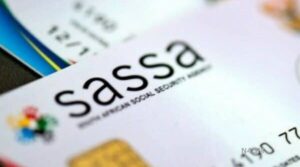When you look at any field from law to medicine or business administration, it is all about the details. The ability to organize, analyze, and draw conclusions from the smallest of details is what makes a successful legal transcriptionist.
However, these workers must also be able to read easily and quickly, have an excellent command of English grammar and syntax, have strong spelling skills, and have the ability to listen carefully so that they catch every word.
Anyone can learn this job with some practice. Reading books on grammar, listening to podcasts on the usage of words, reading everything aloud while recording yourself on audio, and practicing diction will help you become a legal transcriptionist.
Read on to find out why legal transcriptionists are important in law firms and how you can get started in this career as quickly as possible.
How Legal Transcriptions is Important?
Legal transcriptionists are a critically important part of the legal process. They’re responsible for converting the spoken word or rather, audio transcription during a court hearing (whether in-person or over the phone) into a written document that can be used for further legal action. In addition to court proceedings, legal transcribers may also be tasked with recording legal interviews, depositions, and other client communications that take place outside of the courtroom.
https://www.transcriptionwing.com/why-is-legal-transcriptions-important/ Legal transcriptionists may be employed by an attorney’s law firm, a court system, or a company that provides transcription services as needed for other legal entities. These positions can be full-time, part-time, or contractual. While the field is not regulated in the United States, certification is available, and employers may prefer or require that their transcriptionists are certified.
How to Become a Legal Transcriptionist?
You must be good at listening, have an ear for details, and have a natural flair for writing as well. You must also have an excellent command of English grammar and syntax, strong spelling skills, and the ability to listen carefully so that you catch every word. There is no specific educational or certification requirement to become a legal transcriptionist, but most employers will prefer someone with a college degree.
Reading books on grammar, listening to podcasts on the usage of words, reading everything aloud while recording yourself on audio, and practicing diction will help you become a legal transcriptionist. The work is usually done from home, so flexibility to work odd hours is a must. Your initial investment in this profession can be very low as legal transcription work can be done from your computer.
You can set your own hours, do the work according to your own schedule, and start earning money even if you don’t have any experience. This is one of the highest-paying freelance professions, but you need to be good at writing to be successful in it. You can also try to get a part-time job as a transcriptionist with an online transcription and translation company.
Skills Required to be a Legal Transcriptionist
- Excellent Ability to Listen: This is probably the most important skill a transcriptionist needs. For you to offer transcription services or translation services accurately and quickly, you need to be able to listen closely and be able to distinguish between different speakers.
- Excellent Ability to Write: You have to write down everything that’s being said on the recording. You have to write extremely quickly as well because these recordings are usually long.
- Excellent Ability to Organize Details: You have to be able to organize all the facts and details being said in the recording and write them down in chronological order.
- Excellent Command of English Grammar: You have to be extremely careful while writing down the facts so that you don’t make any grammatical mistakes.
- Excellent Ability to Use a Computer: You have to type everything quickly and accurately.
.
https://www.transcriptionwing.com/why-is-legal-transcriptions-important/
The demand for legal transcriptionists
According to data provided by the US Department of Labor, the demand for legal transcriptionists is expected to grow by 10% by 2026. With rising digitization, there has been an increasing need for transcription services. Legal transcriptions is one of the most sought-after services in this industry. There are many online companies that provide transcription services.
You can sign up with these companies and work from your home as a freelance transcriptionist. You can also look for transcriptions jobs in law firms and courtrooms. The average salary for a transcriptionist varies from place to place, but it’s usually somewhere between $15 and $40 per hour.
The companies that provide transcription services usually pay per audio minute and offer incentives for quick and accurate work. Freelance transcriptionists usually charge per audio minute, but they also have to pay for all the equipment they need.
Downsides of Being a Transcriptionist
- Working in a noisy office: Legal transcriptions work often takes place in a noisy office environment where you are surrounded by other people’s conversations, phones ringing, and sometimes even loud music playing in the background. You may have to deal with this type of challenging working environment if you work remotely.
- Working long hours: Many transcriptionists work long hours, and some companies pay per audio or video file, which means you earn a set amount per file you transcribe. This can mean that you earn considerably less when you are dealing with particularly long audio or video files, such as a full day-long deposition.
- Working alone: You may not have a set work schedule or be able to work from homes like some other office and administrative staff. Instead, you may work alone in a room by yourself. If you work remotely, you may not have a set schedule, which can make it difficult to find consistent child care and can lead to feelings of isolation.
Conclusion:
Legal transcriptions are a critical part of the legal profession. It’s important to not only create a written record of what takes place during an interview or hearing but also to understand the intended meaning of the spoken words.







